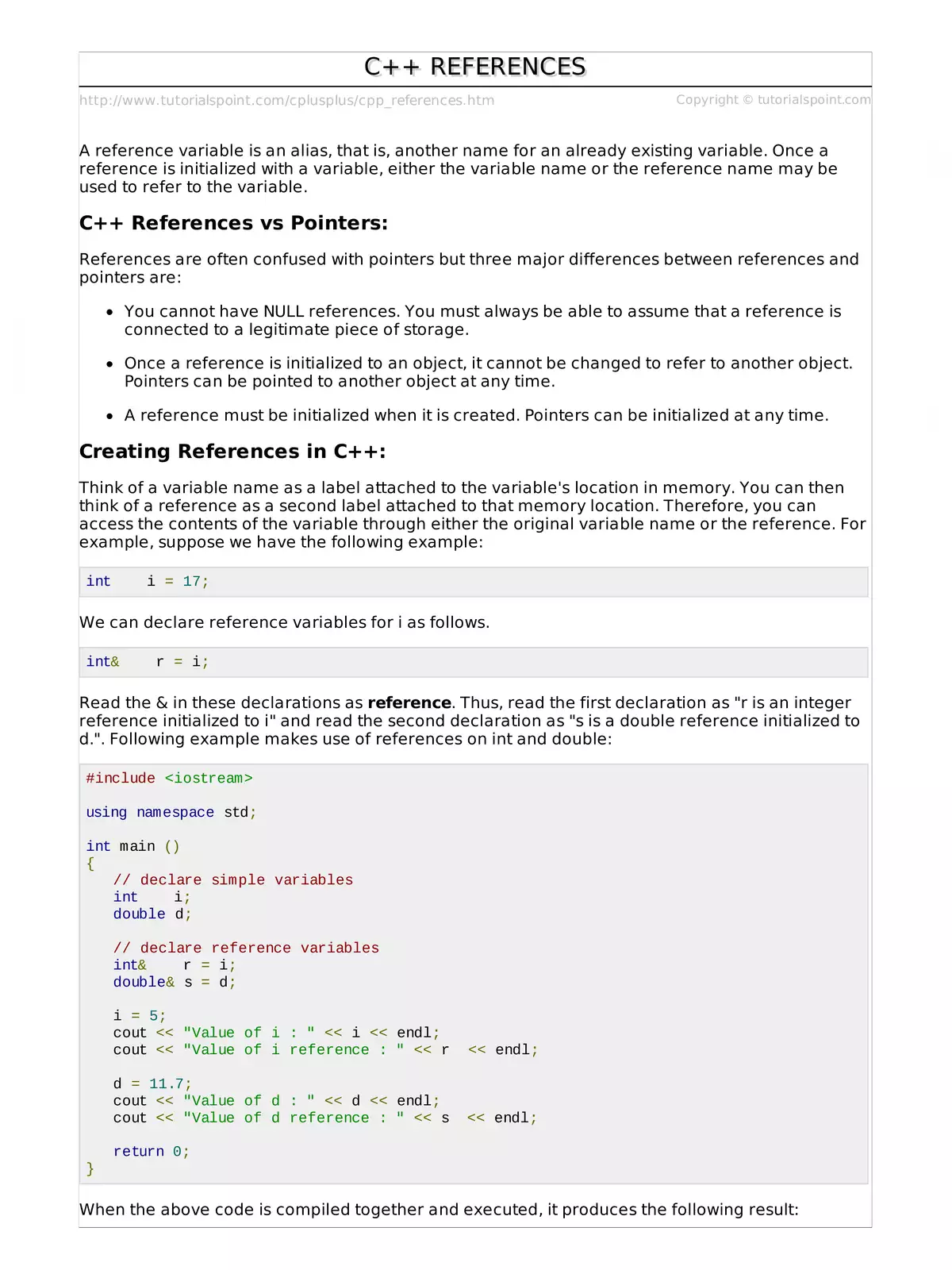Reference Variable in C++ - Summary
Reference variables in C++ are a powerful feature that enables you to create an alias for an existing variable. Think of a reference as a nickname for another variable. For instance, if you create a reference called peter for a variable named paul, you can use either name to refer to the same data.
Understanding Reference Variables in C++
A reference variable in C++ acts like a pointer to an object of a specific class, allowing you to easily access and manipulate the value of that object. For example, when you retrieve a row from a database table, you can combine all values from that row into a single object before passing that object to a function or procedure for further processing.
Key Differences Between References and Pointers
It’s crucial to understand that references are often confused with pointers. Here are three important differences:
- You cannot have NULL references; a reference must always link to a valid piece of storage.
- Once a reference is initialized to an object, it cannot change to point to another object.
- While pointers can point to another object at any time, a reference must be initialized when it is created.
